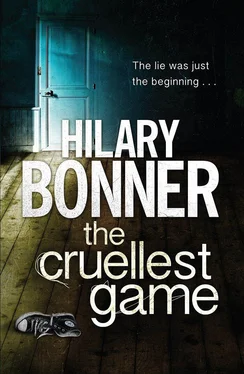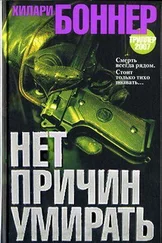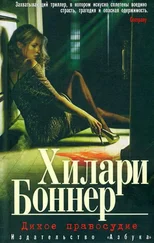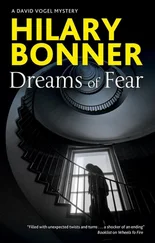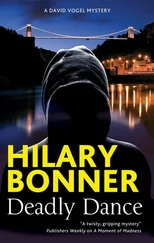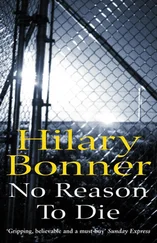There was also no sign of any police activity or any of the paraphernalia of a crime scene around the house. I could only assume that the police had completed their search — and, come to think of it, that was what Jarvis had indicated — and that the house was no longer a crime scene. Indeed, had it been so I would definitely have had a wasted journey because presumably Robert and his child would not have been allowed to be there.
There was a window slightly ajar on the first floor which hopefully indicated that somebody was in residence. And surely it must be Robert. For reasons I couldn’t quite explain to myself I wanted to see him in this other environment. Just a glimpse would do. I had driven to the grim Bridge Estate entirely for that purpose.
I waited for about forty-five minutes. Then the door to number 5 opened, and Robert, as unshaven and dishevelled-looking as now seemed to be his habit, stepped outside and seemed to be sorting some newspapers and bottles into recycling bins.
His clothes looked as if he’d slept in them. I hoped he wouldn’t notice me watching him, and was glad that I was driving a car he wouldn’t recognize and had been able to park behind the transit van. However, he seemed almost curiously intent on his task. A movement behind him caught my eye. A little girl, presumably Janey, had appeared in the doorway. She seemed quite small for her age, and young, both in looks and behaviour. But then I only really had Robbie to compare her with. And he had always been tall and rather grown-up. She was jumping on and off the doorstep, up and down, up and down, laughing like children do, as if she didn’t have a care in the world. Maybe Robert had so far managed to keep at least the worst of it all from her. She must surely have known that her mother had brought a little boy into the house, and I wondered how Brenda would have explained that. I also wondered if the girl even realized fully that her mother was dead. Whatever she knew at the moment, and however much she was being protected, she could not be kept in the dark for long, that was for certain. Just as she surely could not be kept in the dark for long concerning the terrible illness which lurked within her lithe young body.
In stark contrast to her father, and the sorry state of their house, little Janey was immaculately turned out. She wore a pristine cream tracksuit jacket, clean jeans and those trainers all the kids like which light up at the heel when you stamp on them.
She had very black hair and pale opaque skin. Just like her father. And just like the half-brother she had never known. Robert’s genes must be powerful, I thought. His daughter, like our son, was the image of him. No wonder Brenda had avoided my meeting her, and made up her story about a son and daughter as a kind of further camouflage, I suppose, in case of anything I might mention to Robert. Anyway, if I had ever met Janey before, I would have at once spotted the resemblance to the man I’d thought was my husband. Another Boris Becker moment.
Robert finished his recycling, straightened up and went back into the house, ushering the child in before him. I watched as the door shut behind them, unsure really what I was feeling. And I was so wrapped up in my own muddled thoughts that I didn’t spot the police patrol car until it pulled up right outside number 5.
Two uniformed officers, both men, and a woman in plain clothes whom I presumed to be CID, none of them among the considerable number of officers I had recently encountered, stepped out and approached the front door.
After just a few seconds the door opened and Robert appeared again. I could see him clearly. He did not register surprise; more resignation tinged with dismay really. It was almost as if he had been expecting this visit. And I suppose he probably had.
Like me, he would have known that, at the very least, the investigation into Brenda’s sudden death was still ongoing. And, like me, he must surely have thought he would be the prime suspect.
He opened the door wider, and stepped to one side, allowing the three officers to pass through. Then the door shut again.
I waited. After half an hour or so, Robert, wearing a coat now, appeared again at the door with the child I presumed to be Janey. He was carrying a small rucksack. I recognized it as the one he always had with him when he travelled between home and the oil rig. Or when I’d assumed he’d been travelling to a rig. I thought the little girl now looked confused and ill at ease. Robert put the rucksack down on the doorstep and took hold of her hand, bending over slightly to talk to her, as if trying to reassure her. He led her down the garden path and out through the gate onto the pavement, turning right — fortunately in the direction away from me — as I really did not want him to see me, then up the garden path of a house two doors away.
An almost cliché-like motherly sort of woman, full-bosomed and smiley, welcomed the two of them, and made a big fuss of the child, before leading her inside.
Robert, head down, shuffling his feet, returned to his own house, though it still seemed odd for me to regard it as such. I noticed then that one of the male uniformed police officers was standing in the porch. He had presumably been watching Robert’s activities. They stood there together for just a moment or two before being joined by the other two officers. Robert stepped into the porch, to lock the front door, it seemed, and to pick up his rucksack. The smaller of the two uniformed men led the way to the patrol car, unlocked it, and climbed into the driver’s seat. The second uniformed officer and the woman waited for Robert, then proceeded to walk on either side of him towards the car.
As they stepped onto the pavement two male photographers with cameras and another man and a woman, presumably reporters, came tearing out of a house opposite.
The police officers indicated that they should keep their distance, and the reporters satisfied themselves with shouting questions at Robert and his police escort, all of which remained unanswered, while the photographers rattled off their snaps from several feet away. I suspected they had already taken plenty of shots from a window across the road from Robert’s. I’d heard about journalists paying householders to use rooms in their house as a vantage point from which to keep watch on targets. The press had probably been watching 5 Riverview Avenue ever since it became public knowledge that the house was the subject of a major search.
The whole incident only lasted a matter of seconds. Very swiftly Robert was ushered into the back of the patrol car where he sat with an officer on either side of him. I watched the car set off up the road and the journalists retreat.
I hoped I could be forgiven for feeling a kind of vicarious satisfaction. Whatever the outcome, and whatever truth might be revealed, I found myself hoping that Robert suffered the same level of fear and humiliation that I had experienced. After all, as he had admitted himself, if one person was to blame for everything, it had to be him. Not his poor sick wife, driven mad by a combination of disease and despair, both probably as terrible as each other. Not her, nor anyone else, like the bullying father of Robbie’s poor young girlfriend.
Just him. Robert. The man I had married in good faith and devoted my entire life to.
The following afternoon DS Jarvis phoned to say that Robert had been charged with the murder of his wife. His legal wife.
‘We’re just about to release a press statement. I didn’t want you to see it on the news,’ he said.
Bizarrely, I reflected on his new-found sensitivity before the enormity of his words hit me. It had been obvious this might happen since my first conversation with Jarvis and Price three days earlier. None the less, I found myself totally shocked. I was standing by the kitchen table. I sat down with a bump.
Читать дальше
